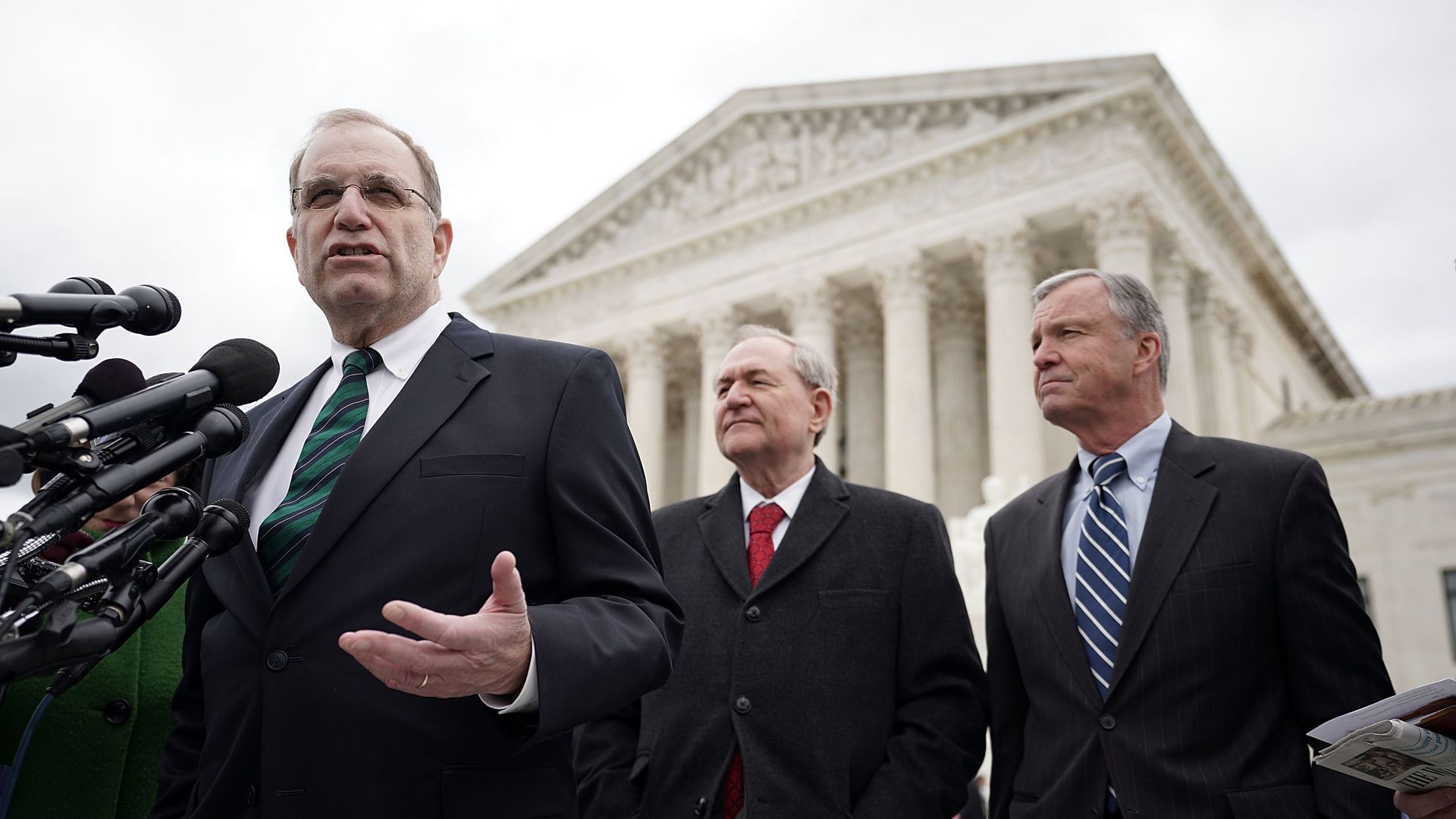Updated Apr 18, 2018 - Economy
Supreme Court grapples with online sales tax
Add Axios as your preferred source to
see more of our stories on Google.

George Isaacson (left), lead counsel for the defendants in the South Dakota vs. Wayfair case, outside the Supreme Court. Photo: Alex Wong/Getty Images.
